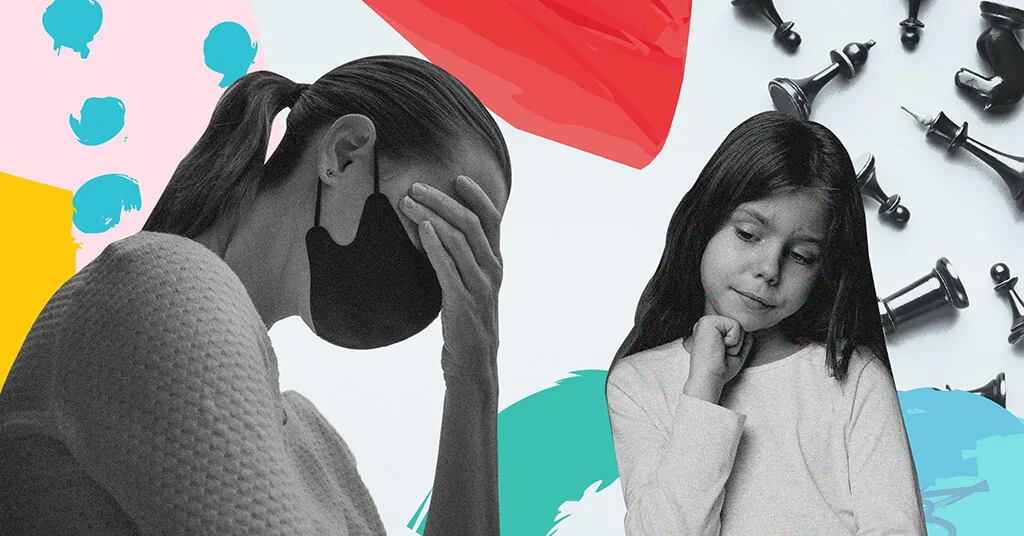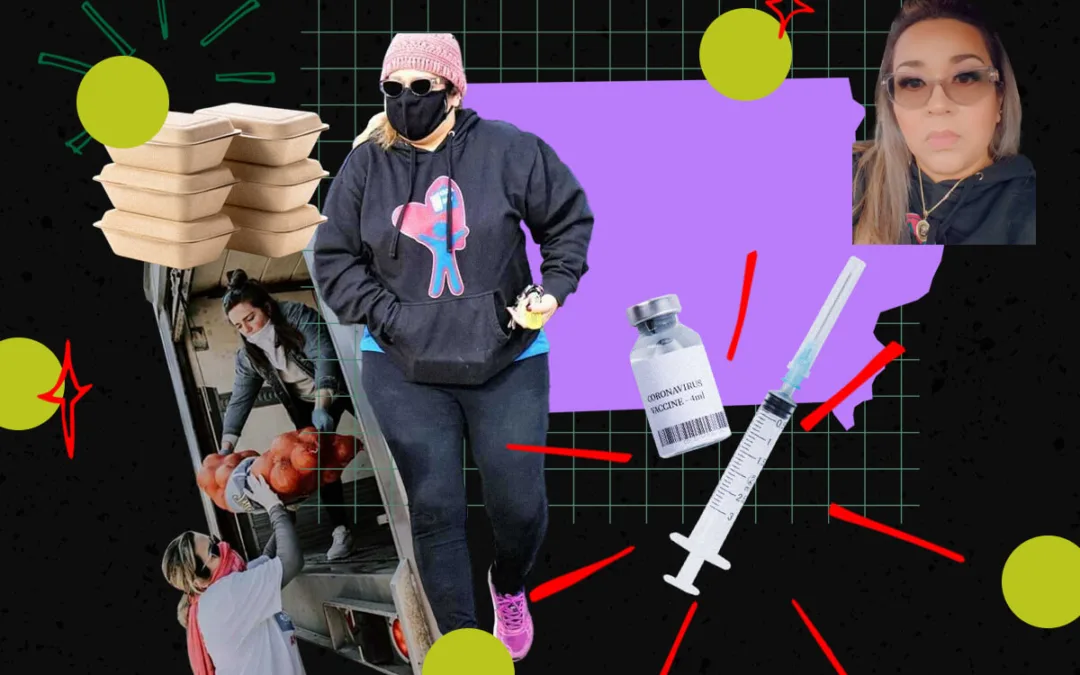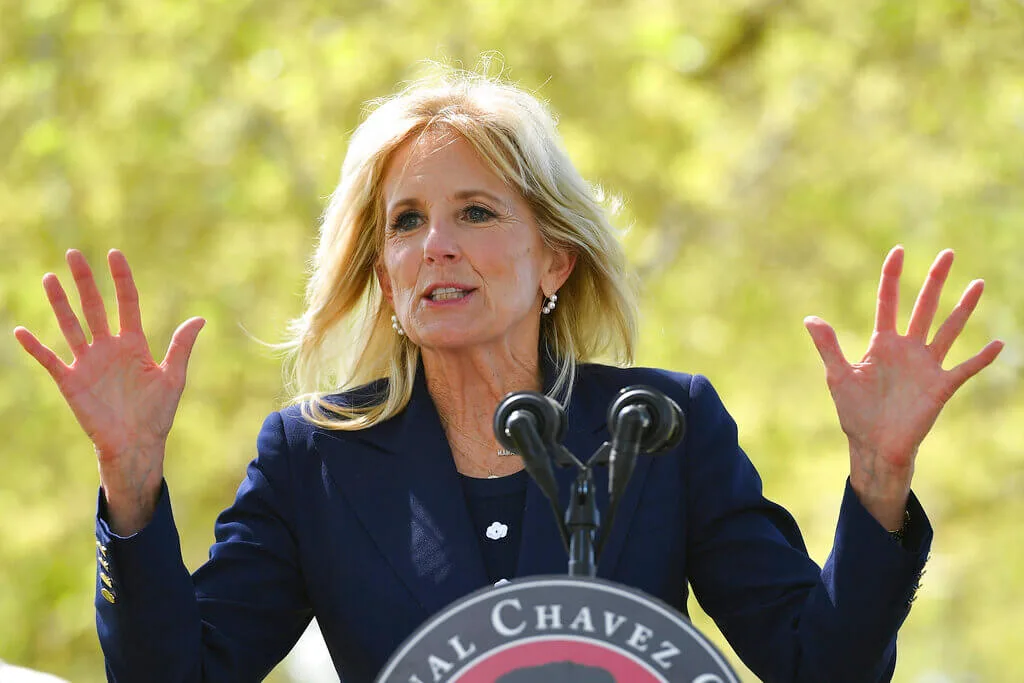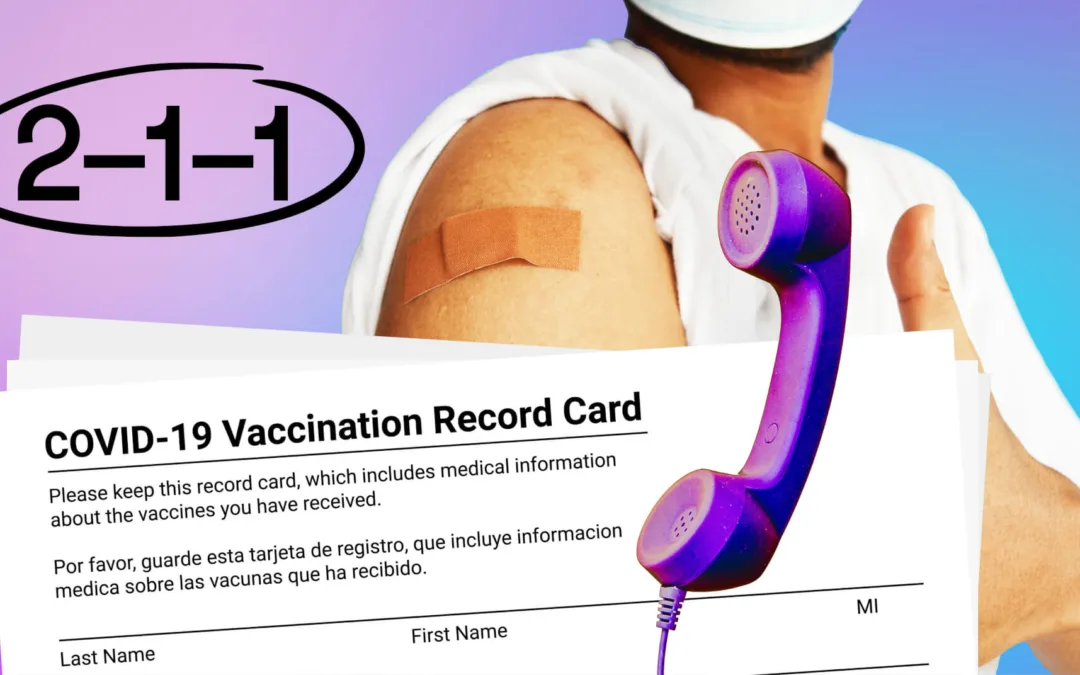
Graphic via Tania Lili for The Americano
The disease has had a disproportionate impact on Hispanic women across the country and taken a toll on their mental health.
Jennifer Vela of South Texas didn’t experience the pandemic from afar. COVID-19 hit home. Her aunt and cousin were diagnosed with the disease. Her aunt eventually recovered, but her cousin wasn’t so lucky.
“She had it and thought she was doing better,” the 38-year-old said in an interview with The Americano. “From one day to the next, she was gone. It was too early for her to die.”
“It’s scary to think that COVID-19 plays favorites, and that it is worse for minorities is very alarming,” she adds.
Disproportionate Impact on Latinos
For Latinos, COVID0-19 has been a devastating blow. According to a Washington Post analysis of data from the Center for Disease Control and Prevention, one out of every five Latino deaths now is due to COVID-19. Even more startling is how COVID-19 has affected pregnant Latinas. Another Washinton Post report indicates that Latinas accounted for almost half of 14,100 pregnant women who tested positive for the disease, the largest group by far.
“I worry for my family, and all of the elderly and people with underlying conditions,” Vela said. “Not to mention, the Latino community already struggles with poverty and adequate health care. We are in a battle.”
Related: Latinos Use Social Media for COVID-19 Resources More Than Average Americans
In particular, Latinas are dealing with enormous pressure, including taking care of children and their education, working outside the home, or dealing with unemployment, helping out sick family members, among other issues. Latino non-profit Jolt Texas claims to have data showing that 52% of Latino parents or primary caregivers have had their work hours or pay cut, while 29% of Latino families have had someone in their household lose their job due to COVID-19. All of these issues contribute to mental health issues, including stress and anxiety.
“At the beginning of the pandemic, I was seriously struggling,” Samantha Howard, 43, of Maryland, said. “Having so many of my support systems, including daycare and not being able to visit family, stripped by the shutdown, was difficult. Having to now balance telework, home, children, schooling for children, running a small business, and life simultaneously while trying to remain safe, adhere to the regulations and restrictions took a toll on my mental health.”
Howard said she experienced burnout and severe stress. She took it upon herself to refocus and figure out how to best adjust the family dynamics and expectations to get to a place where she can manage the new normal.
‘COVID PTSD’
Maria Elizet Tenorio, 34, of Georgia, did get infected with COVID-19, as did her husband. She said she did not understand the severity at the beginning of the pandemic because people at her husband’s job did have the coronavirus but didn’t show any symptoms. It was only until after her diagnosis that she realized how serious this virus was. While she’s recovered from COVID-19, she’s still experiencing mental health issues.
“I have COVID PTSD and fear of being out and about,” Tenorio said. “I am a very social person, so I struggle and have struggled more because I can’t see my family.”
Studies indicate that stress, anxiety, and depression have been prevalent among people during the pandemic. The Centers for Disease Control and Prevention also report that mental health concerns connected to COVID-19 are common.
Alicia Oliveira, 34, of Massachusetts, says that she’s gone through various ways of coping with the pandemic in the past couple of months. From sheer panic to conspiracy theories and then not caring at all, to eventually living a more cautiously and balanced, Oliveira is finally in a better place. Still, it took a while to get there.
“My mental health now is okay,” Oliveira adds. “I have ups and downs. But in March-April, I had a few nervous breakdowns, panic, and anxiety. I had a sense of the world ending type of thing.”
Abigail Camacho, 35, of California, says it is her faith that has helped her keep her head above water. She credits her church for being her “lifeline” through this incredible ordeal.
“I’m not going to lie, I have felt pretty bad,” Camacho says. “But, my faith keeps me grounded.”
She adds, “It’s tough all around, and I think having a good support system helps. Having someone to talk to is important.”
Click here for more information on how to cope with stress and anxiety and for help hotline numbers.
Politics

Teamsters and UPS Reach Tentative Deal to Avoid Strike, 340,000 Workers to Get Raises
The tentative deal represents a huge win for full- and part-time UPS Teamster workers, who would get significant pay raises and better working...



One Republican Senator Is Blocking 265 Military Promotions, Leaving the Marines Without a Confirmed Leader
Sen. Tommy Tuberville's decision means these military officers are not getting the pay raises they’re owed, cannot move their families to wherever...
Local News



Teamsters and UPS Reach Tentative Deal to Avoid Strike, 340,000 Workers to Get Raises
The tentative deal represents a huge win for full- and part-time UPS Teamster workers, who would get significant pay raises and better working...



One Republican Senator Is Blocking 265 Military Promotions, Leaving the Marines Without a Confirmed Leader
Sen. Tommy Tuberville's decision means these military officers are not getting the pay raises they’re owed, cannot move their families to wherever...




